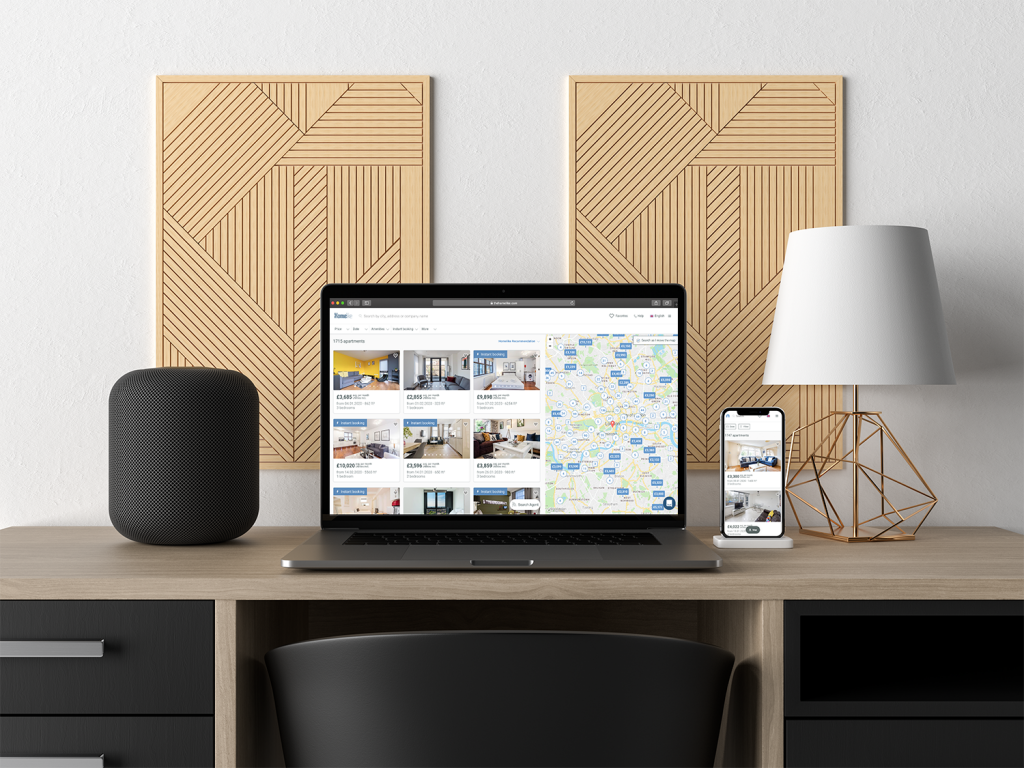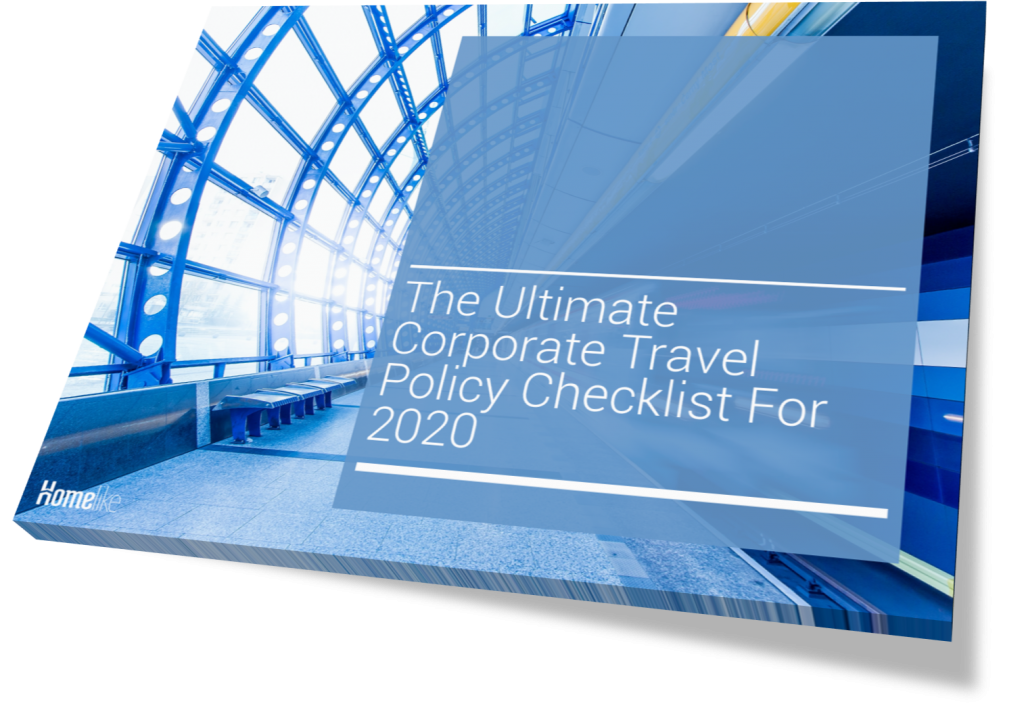The days of blowing thousands of dollars on business class tickets, wearing fancy suits to business meetings, waiting in luxurious airport lounges and being picked up at the airport by a driver holding a placard screaming your name are long gone.
The last decade has seen monumental changes in the business travel sector. The emergence of sophisticated mobile travel apps has simplified travel planning and given us the ability to make quick travel decisions in a fast-paced world.
But what will business travel look like by the year 2030?
New research has forecasted substantial growth in the business travel sector along with continued adoption of tech-based solutions in the new decade.
These are the top trends and consumer behaviours that are expected to influence the corporate travel industry in the coming years:

Top 7 Business Travel Trends and Predictions for 2020
- 1. Millennials will be the driving force behind business travel trends
- 2. Increased use of travel apps and artificial intelligence
- 3. Business travel is a major perk and bleisure is here to stay
- 4. Ethical business travel is on the rise
- 5. Long term business travel on the rise
- 6. Long hotel stays may come to an end
- 7. Flexible Corporate Travel Policies
1. Millennials will be the driving force behind business travel trends
With baby boomers set to retire in large numbers, millennials will be the dominant generation in the global workforce followed by gen Z. This transition will have a dramatic impact on corporate travel policies and business travel trends.
Millennials are the generation that sees business travel as an opportunity and not a nightmarish burden. They love jumping headfirst into new adventures and experiences and care far less about job security than their predecessors.
Having grown up in a tech-centered world, most millennials want access to self-service booking tools, peer to peer car-sharing services like Uber and Lyft, comfortable home stays and flexible work options in stark contrast to the previous generation that preferred dedicated airport pickups, business-class hotels and traditional 09:00 to 05:00 jobs.
In the new decade, many companies are expected to tailor their corporate travel policies to keep up with this change in consumer behaviour and expectations.
Business travellers will have far more autonomy in business travel decisions especially accommodation and transportation and won’t have to rely entirely on a travel itinerary handed to them by a travel manager.

2. Increased use of travel apps and artificial intelligence
Let’s go through some statistics.
- Almost 90% of Millennials use at least one form of tech device at least once a day
- More than 50% of Millennials use a smartphone to book travel
- More than 90% of Millennials use social media during travel
- More than 70% of Millennials use social media to share their travel experiences
What do we gather from this?
Millennials are constantly connected to the internet. From decision making to purchase and beyond, travellers are constantly connected to service providers which means that even the slightest challenge can be resolved in real time.
In addition, a large number of millennials want authentic cultural experiences during their travels. Today’s travellers have a lot of options and often switch between various options and pour through peer reviews before making a purchase decision.
Amidst these evolving consumer needs, more travel apps are expected to pop up in the coming years that use artificial intelligence and past browsing behaviours to create seamless and personalised offers for the modern business traveller.
Google Flights already uses Machine Learning to predict possible flight delays using the flight’s historic data and current conditions. Passengers can simply type in their flight number and receive updates even before an official announcement from the airline company. This is a clear example of how artificial intelligence can make our lives easier in the future.
Google Maps also uses artificial intelligence to tailor recommendations based on past browsing behaviours as well as current and past location data. It can suggest restaurants and activities based on your location and keep you updated about what’s new in places you frequent. Neat, right?

3. Business travel is a major perk and bleisure is here to stay
Let’s go back to our earlier discussion about the millennial outlook and changing consumer patterns. Many millennials value interesting experiences over job security and money. Every day, we see new instagram stories about millennials quitting their lucrative jobs to travel the world and experience different cultures.
Millennials are also ditching the 8 to 5 job culture to work on their own terms and lead a digital nomad lifestyle.
With millennials reshaping the business world as we know it, providing opportunities for business travel and implementing flexible bleisure policies might be crucial in keeping them engaged in the workplace.
So what is bleisure? In the past, business travel was exclusively for work. People traveled to work, met with clients, underwent training sessions, and went back home.
Nowadays, many companies are allowing employees to extend their business trips by a day or two to explore and sightsee on the company dime. Isn’t that ingenious? It is a great employee retention strategy that makes employees feel valued and creates a better work-life balance.
Need another reason to offer business travel and bleisure as a perk?
Research has shown that a large chunk of millennial professionals consider business travel a major perk. Nearly 40% of Gen Y and Gen Z workers say they wouldn’t accept a job that doesn’t include travel and 30% say they would be willing to accept a lower salary for the opportunity to travel more.
Hiring a good employee is only a baby step. If you hope to retain employees that know your business, you must embrace the expectations of the new-age professionals.

4. Ethical business travel is on the rise
The world is heading towards a tipping point with global warming and the number of climate-related incidents rising everywhere. The millennial generation is far more aware of the catastrophic effects of air travel emissions and man-made climate change than their predecessors.
Many millennials are now adopting eco-friendly travel habits in an effort to reduce their carbon footprint. In the new decade, energy-efficient methods of transportation such as trains and buses are likely to be more affordable making it easier for business travelers to make environmentally sustainable travel decisions.
For instance, if you are traveling to the US another way to save the environment applied in the States, according to Bluenationalhvac, is through installing eco-friendly HVAC systems by home and business owners which could be a really good model to be imported in Europe too.

5. Long term business travel on the rise
It is a well-known fact that regular short-term work trips can cause mental strain and feelings of isolation among employees.
In the coming years, many companies are expected to reduce or entirely do away with frequent short term business trips in an effort to encourage conscientious travel practices and better work-life balance for employees.
If your business requires the frequent presence of an employee in a different city, it might make more sense to opt for long business trips or temporary relocation.

6. Long hotel stays may come to an end
15 years ago, you may have responded with a raised eyebrow if someone had recommended choosing a furnished apartment instead of a hotel for a work trip or even a holiday. This is certainly not the case anymore.
“Non-traditional” accommodations like furnished apartments, serviced apartments, and apart-hotels are gaining in popularity and many young professionals consider them the ideal option for all kinds of travel. Fully furnished apartments offer many of the comforts of a traditional home. After all, who wouldn’t want to bring leftovers from a great restaurant and have a microwave oven to heat it up the next day?
On a serious note, recently conducted research at Homelike on what UK business travelers look for when booking accommodation for long business trips of over thirty days and found that a third of them would rather stay in a furnished apartment than a hotel. This would have been unimaginable a few years ago.
The furnished apartment trend will continue to grow as business travelers are increasingly choosing home comforts like functional kitchens, living rooms, bedrooms, and dining rooms over an old-school hotel stay.
Remember those days when room service meals were the norm for people on business trips? That will end too. The new decade will see corporate travelers come home with a bag full of healthy groceries and cook a delicious meal just as they would at home.

7. Flexible Corporate Travel Policies
Do you know that many companies actually don’t have a travel policy even though they send their employees on frequent work trips?
Companies will start recognising that employee health and satisfaction are directly tied to business results and will implement travel policies geared towards employee wellness and happiness.
Saving money shouldn’t be the be all and end all of your corporate travel strategy. It is more important to mesh comforts within the travel plans to make employees feel valued, and perform at their very best.























